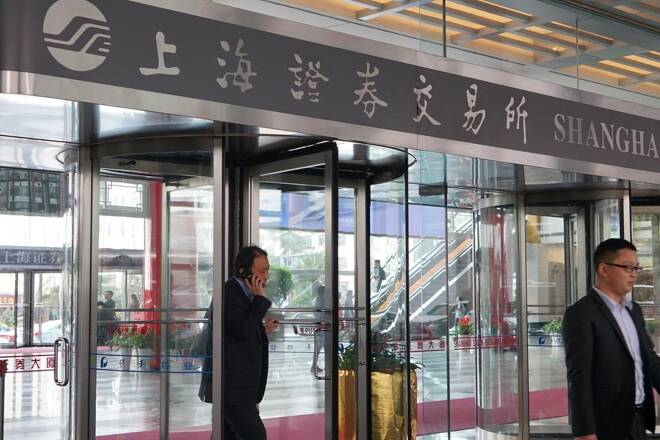Advertisement
Advertisement
Asian Shares Finish Higher; Tech Stocks Drive Hong Kong Higher; RBA Keeps Policy Steady
By:
The Reserve Bank of Australia (RBA) on Tuesday announced its decision to maintain the current policy settings.
The major Asia-Pacific stock indexes finished higher on Tuesday as strong U.S. manufacturing data boosted sentiment through the Asian session, even as U.S.-China relations took a turn for the worst.
An industry gauge released in the U.S. on Monday indicated U.S. manufacturing activity expanded in July at the fastest pace in more than a year, although hiring remained subdued. U.S.-China tensions worsened as President Donald Trump said that he will ban Chinese app TikTok in the U.S. unless a tech company such as Microsoft buys it. The move provoked an outcry on Chinese social media and criticism from a prominent Chinese investor in TikTok’s owner, ByteDance.
On Tuesday, Japan’s Nikkei 225 Index settled at 22573.66, up 378.28 or +1.70. Hong Kong’s Hang Seng Index finished at 24946.63, up 488.50 or +2.00 and South Korea’s KOSPI Index closed at 2279.97, up 28.93 or +1.29%.
China’s Shanghai Index settled at 3371.69, up 3.72 or +0.11% and Australia’s S&P/ASX 200 Index finished at 6037.60, up 111.50 or 1.88%.
In other news, the rebound in the U.S. Dollar faltered, with investors still waiting for Washington to make progress in talks over the next round of fiscal stimulus.
Meanwhile, lawmakers said they had made progress in the talks, and U.S. House Speaker Nancy Pelosi will meet again with Treasury Secretary Steven Mnuchin and White House Chief of Staff Mark Meadows on Tuesday, raising hopes for a breakthrough.
Hang Seng Snaps Three-Day Losing Streak
Hong Kong stocks snapped a three-session losing streak and ended higher on Tuesday, led by strong gains in technology firms. Tech firms got a boost from expectations that household names Alibaba, Meituan Dianiping and Xiaomi Technology may join Hong Kong’s Hang Seng Index this month.
Mainland China and offshore hub Hong Kong’s latest indexes representing technology companies are likely to attract $25 billion in five years from passive investors, according to a Goldman Sachs report released on Thursday.
RBA Announces Decision to Maintain Current Policy Settings
The Reserve Bank of Australia (RBA) on Tuesday announced its decision to maintain the current policy settings. That came as social distancing measures have been ramped up in the Australian state of Victoria to contain the coronavirus.
RBA Governor Philip Lowe said in a media release announcing the monetary policy decision that the recovery in the Australian economy is “likely to be both uneven and bumpy,” acknowledging that the coronavirus outbreak in Victoria is having a “major effect” on the state’s economy.
For a look at all of today’s economic events, check out our economic calendar.
About the Author
James Hyerczykauthor
James Hyerczyk is a U.S. based seasoned technical analyst and educator with over 40 years of experience in market analysis and trading, specializing in chart patterns and price movement. He is the author of two books on technical analysis and has a background in both futures and stock markets.
Advertisement
